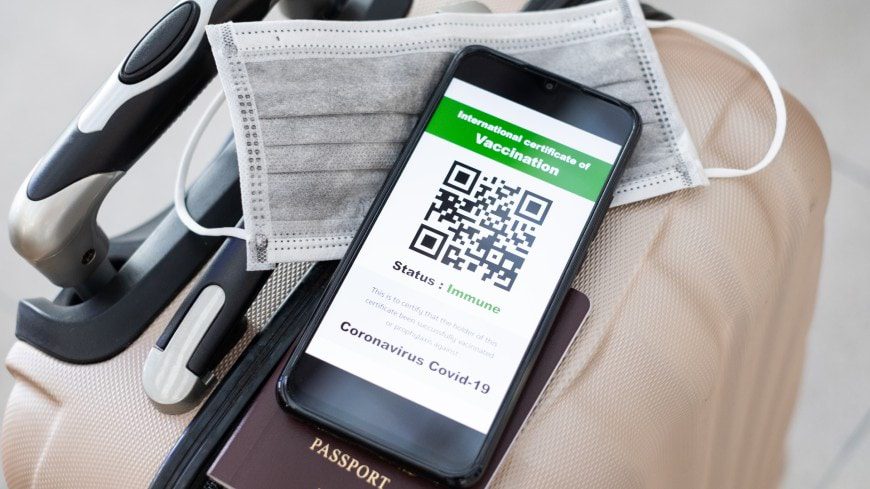
The French government has chosen to move to a higher level of control in response to the COVID-19 pandemic, in contradiction to the multiple declarations over the last weeks.
The pass sanitaire in force in France since July 2021 will be transformed into a vaccine pass as of January 2022. A bill will be submitted that bans recourse to negative testing as a means to a valid health pass. A valid pass will henceforth be conditioned on three doses of regulatory vaccines, with a reduction in booster shot intervals.
This decision was announced by Prime Minister Jean Castex early Friday evening, December 17th, even though President Emmanuel Macron had given a very long speech two days earlier without once mentioning this prospect—a duplicity of language that is now being reproached.
This is not the first time that contradictions have been pointed out in government communication. Indeed, on November 25th, Minister of Health Olivier Véran argued on the news channel BFM TV that the health pass would in no way lead to a vaccine pass.
Polemical statements from members of the government have multiplied in the last few days. Prime Minister Castex explained that he wanted to “put the burden on the non-vaccinated,” while government spokesman Gabriel Attal assumed that he wanted the non-vaccinated to experience “a quasi-lockdown.”
Around six million unvaccinated people remain in France, who are the current target of the government, but doubts exist on the relevance of these figures since many false health passes are in circulation. The number of refractories could thus be higher. The change in the status of the pass will have very important consequences, since apart from patrons of places of entertainment (bars, restaurants, cinemas and theaters), it will also impact travelers on mainline trains throughout the country. Unvaccinated people will therefore be subject to a strong restriction of circulation. The government also wants to study the possibility of extending the health pass’s application to companies. The concern however is over its impact on employers and employees in sectors already affected by the crisis who have not recovered their pre-crisis incomes and who no longer benefit from any State aid. For cinemas, the drop in attendance is 30%; for restaurants, the drop is more than 30% for two-thirds of owners.
The choice for tougher measures for unvaccinated people a few days before Christmas will have a direct impact on the presidential campaign, as it invites the candidates to take a stand on this particularly divisive issue. The subject of the pandemic, whether the candidates want it or not, is becoming one of the crucial themes of the campaign. Marine Le Pen was the first to react, from the island of Mayotte where she is visiting. She clearly promised a return of freedom if she is elected, and condemned the introduction of the vaccine pass.
Éric Zemmour then followed, in more vague terms, but nonetheless also condemning the excesses of the health policy chosen by Castex and Macron. In his own words, such a move establishes a “vaccine class war.” Unsurprisingly, Emmanuel Macron’s voters are grateful for the new constraints that many have been demanding for several months. The most reluctant to weigh in is Valérie Pécresse. She cannot disavow Emmanuel Macron’s policy head-on without giving the impression of contradicting herself. She therefore chose to criticize the government’s method and communication without commenting on the substance of the issue.
The government decided to propose the bill between Christmas and New Year’s Eve, which is a way of avoiding parliamentary debates. A referral to the Council of State and the Constitutional Council will certainly be on the agenda in the next weeks, but there is little chance that the government will back down.
